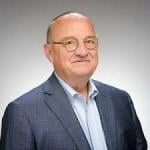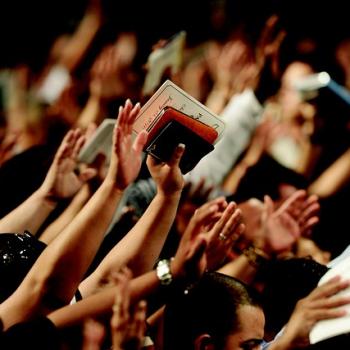The Church of Jesus Christ of Latter-day Saints has, almost exclusively, a lay clergy. Of its several million members, only twenty or so of its ecclesiastical leaders ("priesthood" in Mormon terms) are full-time, paid employees.
The result is sometimes surprising, though it ought not to be. For example, when I was in graduate school the Sunday School of our congregation was run by a man who drove a truck for a living, and he had chosen as his assistants another graduate student and a person who ran a local business.
Many of our lay leaders are professional people. When people notice that, we most often explain it as a result of the fact that there is an overlap of the kinds of skills needed in the professions and the kinds of skills needed to run a congregation. Sometimes, though, I worry that it may partly be the result of the social deference we give to professionals. It comes to us almost naturally to think of those with professional jobs and the incomes and social status that comes with those jobs as more qualified to run things than those without them. Most likely the reality is a result of some combination of both explanations.
But there are important reminders that leadership and ability is not confined to the professional class. The bishop of my congregation, for example, is an excellent auto mechanic. To know him is to be reminded that though he has grease stains on his hands and didn't go to college, he is as smart about the gospel, as people-savvy, and as capable of administering the congregation as anyone. He has tremendous compassion and insight. We are lucky to have him leading us.
It ought not to be surprising that an auto mechanic is a good bishop. After all, it takes considerable intelligence to be a good mechanic, a great deal of administrative ability to run his business, and genuine people skills to deal with his customers. Arguably what he does prepares him at least as well for church leadership as do the kinds of things done by doctors, lawyers, professors, and business executives.
I thought I had learned that lesson—more than once—but social prejudices are hard to remove and I was reminded of that yesterday.
I went to visit an employee of the LDS Church in another city to talk about some mutual professional interests. When I arrived at the building, I was taken up to his office by the building guard at the door. During our conversation, the person I was meeting with asked whether I had met the two local stake presidents. I answered that I have talked with one, but not the other. With surprise he said, "But President So-and-so is the person who brought you to my office." I couldn't have known that because no one had told me, but I ought not to have been surprised to discover that man who works as a security guard during the regular work week is also the president of an LDS stake, the leader over six or seven congregations, each of them with five or six hundred members. I was glad to meet him and particularly glad to be reminded, again, that I ought not to use society's expectations about people, class, intelligence, and ability as my guides in life. My religion out to run counter to the expectations I have learned socially, without having to think about them.
When our religion ceases to challenge our ordinary expectations, either we have reached perfection or it has lost its power for us.
12/2/2022 9:09:20 PM





